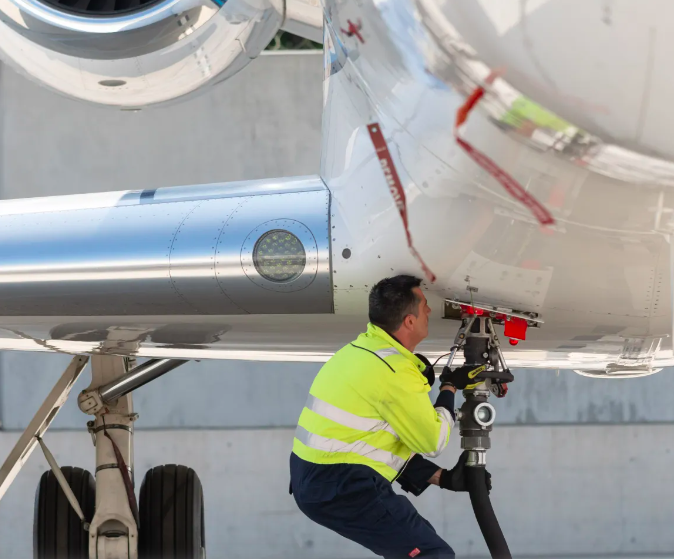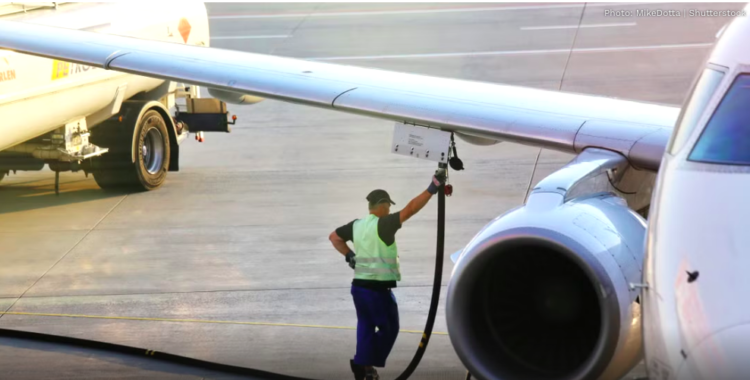Aviation Fuel: Cooking Oil to Aviation Fuel Production in INDIA
August 22,2025

Cooking Oil to Aviation Fuel: Indian Oil Corp. Gets Green Light for Sustainable Aviation Fuel Production
Cooking Oil to Aviation Fuel: Indian Oil Corp. Gets Green Light for Sustainable Aviation Fuel Production Indian Oil Corp. Ltd. (IOC) has achieved a significant milestone by securing India’s first international approval to produce sustainable aviation fuel (SAF) at its Panipat refinery in Haryana, India. The refinery’s SAF production complies with the International Sustainability Carbon Certification (ISCC) standards under the Carbon Offsetting and Reduction Scheme for International Aviation (CORSIA).
Key Highlights:– IOC’s Panipat refinery has secured international certification for SAF production under ISCC CORSIA standards.- The planned SAF plant will utilize alcohol-to-jet technology to produce low-emission fuel from ethanol, with a capacity of 86.8 million tonnes per year.- A co-processing unit will produce SAF-blended aviation fuel from used cooking oil, supporting IOC’s decarbonization efforts.- The Panipat refinery is undergoing expansion to increase crude oil processing capacity to 25 million tonnes per year by 2025-26.IOC plans to establish India’s first commercial-scale SAF plant at Panipat using LanzaJet Inc.’s alcohol-to-jet technology. The plant is expected to be commissioned by 2027-28. Additionally, a co-processing SAF unit will produce 735,000 tonnes per year of SAF-blended aviation turbine fuel from used cooking oil, with a 4% SAF blend. This development paves the way for Indian airlines to integrate certified SAF into their operations and supports India’s strategy to achieve net-zero emissions by 2070.
In its annual 2024-25 annual report released on Aug. 6 covering the 12-month period from Apr. 1, 2024 – Mar. 31, 2025, IOC said it plans to establish India’s first commercial-scale SAF plant at Panipat with a proposed production capacity of 86.8 million tpy.
The proposed SAF plant will be equipped with LanzaJet Inc.’s alcohol-to-jet (ATJ) technology, which uses a feedstock of ethanol to produce low-emission, circular aviation fuel, according to the operator.
IOC said it plans to commission Panipat’s ATJ-SAF plant by 2027-28.

In addition, the operator said it is developing a co-processing SAF unit at the Panipat refinery to produce 735,000 tpy of SAF-blended aviation turbine fuel (ATF) from a feedstock of used cooking oil to further support India’s decarbonisation efforts in the aviation sector.
Scheduled for startup in 2025-26, the Panipat co-processing plant will produce SAF-blended ATF with a 4% SAF blend, IOC said.
Panipat refinery capacity expansion
As part of IOC’s broader program of growing capacities at its refineries to help meet projections for ongoing rising demand for finished petroleum products through at least 2040, the Panipat refinery is currently undergoing a 10-million tpy expansion project to lift overall crude processing capacity at the site to 25 million tpy (OGJ Online, Aug. 12, 2024).
According to the operator’s latest annual report, the Panipat refinery’s integrated crude processing and petrochemical production capacity expansion is on track for phased commissioning in 2025-26.